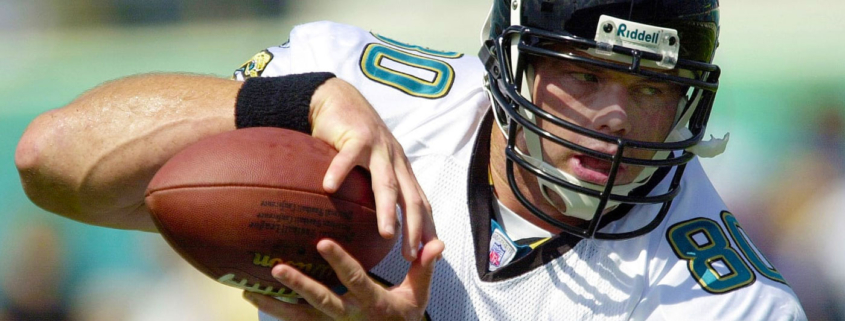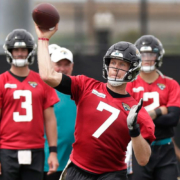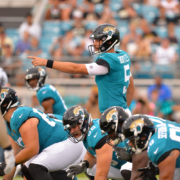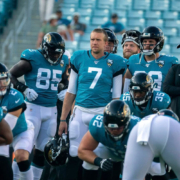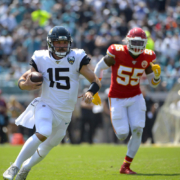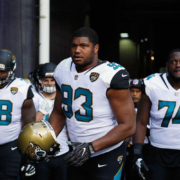Mastery Takes Time
It’s not hard to understand why Jaguars Head Coach Doug Marrone likes this year’s team. He’s said more than once how close he feel to the 2020 Jaguars. And it’s easy to see why. They play hard, they’re fun and they’re an easy group to root for.
But watching them can drive you crazy.
They’ll play great for a couple of plays, then look like they just drew something up in the dirt on the next. Talent and consistency win in the NFL. The Jaguars have plenty of the former and not much of the latter.
Even Gardner Minshew admitted that after last week’s loss to Houston. “We were actually just talking about that in the locker room,” he said. “Trying to figure out what it is, what’s missing, because we have moments where we feel really good about it, and then moments that it just all goes to s***.” kind of, and we just got to figure out how to be more consistent.”
In his book “Outliers” Malcolm Gladwell popularized the theory that it takes 10.000 hours to “master” a particular skill. Ten-thousand hours equates to about five years of work in the professional business world. I know it took me that long doing daily sportscasts before I felt like I could compete at the highest level. In TV you go through the 1) “terrified” phase (Yikes! I’m on TV!). Then 2) “creating an on-air persona you think is appealing. It’s usually followed by 3) acting like yourself (a lot of TV people get stuck there) and finally getting to 4) actually being yourself. (which is also terrifying since you know you’re really exposing who you are every time you’re in front of the camera.)
Ten-thousand hours is a good number to use in the professional sports world as well. With the current twelve-month schedule for players in the NFL, they reach that threshold somewhere in their fourth or fifth year. That’s where having a young team sometimes hurts. Their effort is great, but they don’t have the depth of experience that leads to “mastery.” The Jaguars have fewer than a dozen players with four or more years in the league, and only eight or nine of those get significant playing time.
“You need that unconscious confidence,” former Jaguar and thirteen-year NFL veteran Kyle Brady said this week. “It’s a process, it takes time.”
Brady was a first-round pick of the Jets and his first two years with the franchise was so disjointed he didn’t have a position coach. He split time between the offensive line and the receivers.
“(Bill) Parcells changed the whole situation,” he explained of the Hall of Fame coach coming to the Jets in Brady’s third year. “He righted the ship. He liked tight ends. Mark Bavaro came in to coach me and put my mind at ease. I was pressing, griding my teeth in the huddle, they taught me professionalism. They encouraged me. They said ‘you have everything you need. Just work at it.’”
Brady was one of the first NFL players to work on getting better in a dedicated “away” setting during the offseason. Now it’s commonplace for players to travel to Arizona or Pensacola to work at a sports performance center. Brady says working on the nuance of his position lead to a mantra of what he calls “being committed to ongoing skill mastery.”
“You never come off the field thinking you had a perfect day or a perfect practice,” Brady explained. “You don’t get to the pros unless you have some skill mastery in college. But in the pros, you have a lot of polishing to do. To be committed to the mastery, that’s being a professional.”
Former Jaguars linebacker Lonnie Marts had to earn his way into the league in order to have a ten-year career. Marts signed with Kansas City as an undrafted free agent out of Tulane and carved out a starting spot through hustle and consistency.
“When they cut a guy in camp at your position you’re close to, you realize there wasn’t that much difference between you and him,” he explained. “You start working on self-mastery. You want to be better. You realize ‘I can be the guy to make the team better.’ You get more film time, more practice time. Because you’re the guy they keep, you’re privileged to be there. So, you need to make the team better. You have to be present. You have to concentrate on getting better.”
Basketball Hall of Famer Pat Riley has won at every stop in his career as a player, coach and executive. He agrees with Marts in his book “The Winner Within,” saying “Mastery demands and intense awareness of the present moment.” He adds, “Mastery is built on excellence, the gradual result of always wanted to do better.”
Following that line, Marts caught the eye of the late, legendary line coach Howard Mudd who told him he wasn’t Derrick Thomas, but he could be effective. Marty Shottenheimer was the Chiefs head coach and told Marts if he kept the effort up, they’d put him in the right position and work on his technique. From a free-agent, Marts became a starter in year four and for the rest of his career. He credits working on that “mastery” as the tipping point.
“(Defensive Back) Albert Lewis was cussing me out for not covering the flat in one game and told (Defensive Coordinator) Bill Cowher to get me out of there,” Marts recalled. “I had been working hard on covering the flat but just couldn’t get it. But I worked and worked on it and in one game I got out there and Jeff Hostetler just threw the ball right to me! After the interception, Albert was the first to tackle me out of bounds and yelled, ‘That’s what I’m talking about!”
Marts noted that working on that “mastery” and consistency kept him in the league.
“I had to learn where my faults were. Of course, a coach tells you that every Monday watching film, so it wasn’t hard,” he said with a laugh. “But I think four to five years into the league, you start to search out those vets after games who have been around for a while to tell them ‘Keep working, keep getting better. You’re doing it.”
Two things Hall of Fame Coach Vince Lombardi said apply to what consistent, winning teams have. “Winning is not a sometime thing, it is an all the time thing, he said. You don’t do things right once in a while . . . you do them right all the time
He also talked about seeking perfection, knowing it was “not attainable. But if we chase perfection, we can catch excellence.”
That takes some time to realize in the professional sports world. Athletic talent alone isn’t going to allow you to win at the highest level
“Obviously you need the talent to be able to go out there on the field and to be able to do it and then to prove that you can do it day in and day out,” Marrone said this week. “I think the players that are able to do that and show that consistency, they’re the ones that get the second contracts, play for a long period of time and play at a level where you can win.”
“Some guys come in the league and think they’re going to dominate. They usually get cut down quick,” Brady added. “My fourth year I played with more confidence. I could see it on film, and other players can see it as well. They know, “this guy is coming into his own.”
Marts agreed that it’s the other players that first notice your “mastery.”
“I felt like I was working hard, getting better, but then the offensive linemen on my own team started to notice,” he said. “Irv Eaton yelled at the coaches saying he wanted me off scout team, ‘Because he’s killing us over here.’”
“It comes from the ongoing commitment to skill mastery,” Brady concluded “Things you used to have to think about your first or second year start to come naturally.”

